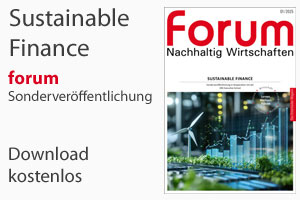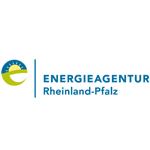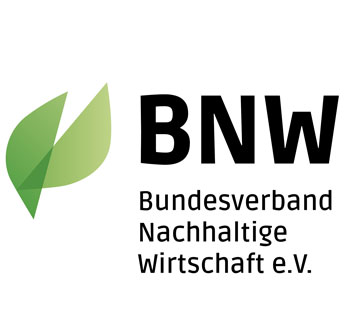Policy-makers cannot afford to ignore soil sustainability
New report, "Opportunities for soil sustainability in Europe” by the European Academies’ Science Advisory Council (EASAC)
Soils play a key role in climate regulation, nutritious diets, agricultural livelihoods, and biodiversity. But soils have dropped down the EU policy agenda, despite their importance for society and nature. There are many opportunities for policy to safeguard the future of Europe’s soils and play its part in reversing global trends in soil degradation, says EASAC.
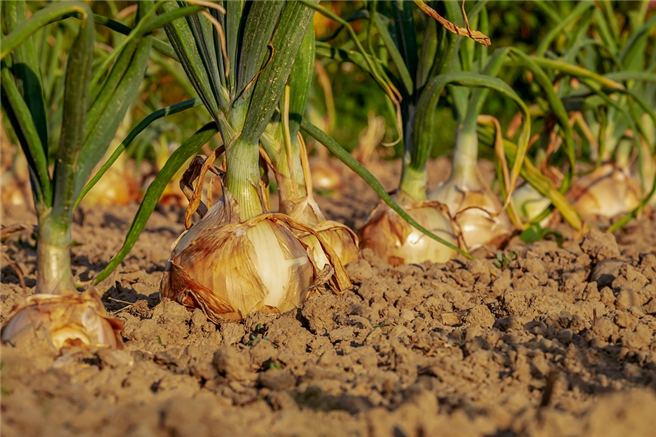 Soils provide the essential nutrients, water, oxygen and support for plants in our agriculture. © Couleur, pixabay
Soils provide the essential nutrients, water, oxygen and support for plants in our agriculture. © Couleur, pixabay"Soils are being destroyed and lost permanently at a rapid rate through housing, infrastructure, and mining. Soil organic carbon contents are decreasing, which increases the likelihood of further global warming, loss of soil fertility, structure, and water holding capacity. The European Union cannot afford to ignore these issues. Environmental degradation not only impacts the environment, it impacts health and livelihoods”, said Professor Michael Norton, Director of Environment at EASAC.
"Soils provide the essential nutrients, water, oxygen and support for plants in our agriculture and also moderate flood risk, purify water, contain massive quantities of carbon and support a biodiverse ecosystem which suppresses soil-borne diseases and provide potential new antibiotics. We should not take soils for granted: they are non-renewable, at least in our lifetime”, said Professor Wim der Putten of the Royal Netherlands Academy of Arts and Sciences.
Top-line issues highlighted by EASAC include climate change; deforestation and the permanent loss of soils; biodiversity; biofuels; health; and the Common Agricultural Policy:
Climate Change
The report notes that soils contain 2-3 times as much carbon as the atmosphere. EASAC supports the ‘4 per mille’ initiative, which aims to increase soil carbon levels because this is crucial for maintaining soil fertility and soil structure. Measures to improve agricultural soils to strengthen food security while helping climate change mitigation are fully supported. However, initial estimates of the potential for soils to substantially offset the increase of atmospheric carbon dioxide are too optimistic and detailed location-specific advice is needed for farmers.
Meanwhile, we must not forget that soil carbon is still being lost through unsustainable use of peat soils and degrading wetlands. Protection and restoration of peatlands is critical to maintaining and increasing soil organic carbon in the EU.
Deforestation and the permanent loss of soils
EASAC expresses concerns that deforestation outside the EU is being driven by continued loss of agricultural land through soil sealing (covering soil with impermeable material, such as asphalt), since this increases the demand for agricultural imports which drives deforestation in countries exporting to the EU. Planning for housing, infrastructure, and mining activities needs to minimize such destruction of the soils’ capacity to produce food and many other ecosystem services.
Biodiversity
EASAC notes that although biodiversity above the ground is protected under the Habitat Directive, Natura 2000, and other biodiversity-related initiatives, what grows and lives above ground is dependent on the biodiversity of the soils beneath them. Indeed, soils themselves are extremely diverse with thousands of species in just a handful! Biodiversity initiatives should thus include soil biodiversity in their management.
Biofuels
Biofuels policies risk increasing the use of crops which are particularly sensitive to erosion (e.g. maize), whereas with the right biofuel crops, soil protection might be enhanced. Soil issues should thus be considered in biofuels and related policies.
Health
EASAC notes that the use of human and animal antibiotics is of concern for their effects on soil biodiversity, the possibility of new forms of antibiotic resistance in soil and effects on the ability of soils to control human, animal and plant pathogens. The roles of soil and crop breeding also need to be better understood to prevent that higher yielding crops are having lower concentrations of micronutrients.
Common Agricultural Policy
Short-term pressures to maximise monetary returns in agriculture may conflict with long-term sustainability of the soil. Specific targets for improving soil sustainability should be included in the next CAP revision.
EASAC also notes the need for expert advice regarding soils management through independent advisory and extension services, which will benefit both farmers and wider society.
The new EASAC report notes that the EU, national agencies, and local authorities could provide a more supportive policy environment for a soil awareness and education strategy. Labelling schemes could be developed to show that farmers have managed their soil in a sustainable way.
About the European Academies’ Science Advisory Council (EASAC)
EASAC is formed by the national science academies of the EU Member States, Norway, and Switzerland, to collaborate in giving advice to European policy-makers. EASAC provides a means for the collective voice of European science to be heard. Through EASAC, the academies work together to provide independent, expert, evidence-based advice about the scientific aspects of European policies to those who make or influence policy within the European institutions.
Kontakt: Professor Michael Norton, EASAC Environment Programme Director
Umwelt | Biodiversität, 26.09.2018
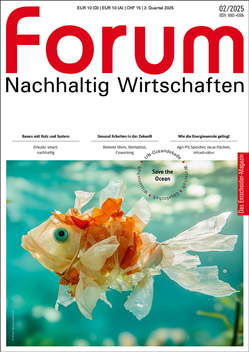
Save the Ocean
forum 02/2025 ist erschienen
- Regenerativ
- Coworkation
- Klimadiesel
- Kreislaufwirtschaft
Kaufen...
Abonnieren...
30
APR
2025
APR
2025
Franz Alt: Die Solare Weltrevolution - Aufbruch in eine neue Menschheitsepoche
In der Reihe "Mein Klima… in München"
80331 München und online
In der Reihe "Mein Klima… in München"
80331 München und online
07
MAI
2025
MAI
2025
MakerCamp Genossenschaften 2025
Genossenschaftliche Lösungen in Wirtschaft, Kommunen und Gesellschaft
65189 Wiesbaden
Genossenschaftliche Lösungen in Wirtschaft, Kommunen und Gesellschaft
65189 Wiesbaden
14
MAI
2025
MAI
2025
Klimaschutz im peruanischen Regenwald
Delegierte der Asháninka teilen ihre Perspektiven
80802 München, Seidlvilla
Delegierte der Asháninka teilen ihre Perspektiven
80802 München, Seidlvilla
29
JUN
2025
JUN
2025
Constellations Week 2025 in Südtirol
Inspiration, Klarheit und Empowerment
I-39010 Tisens-Prissian, Südtirol
Inspiration, Klarheit und Empowerment
I-39010 Tisens-Prissian, Südtirol
Professionelle Klimabilanz, einfach selbst gemacht

Einfache Klimabilanzierung und glaubhafte Nachhaltigkeitskommunikation gemäß GHG-Protocol
Naturschutz
 Mika erzählt uns auch davon, dass diese Natur bedroht ist
Mika erzählt uns auch davon, dass diese Natur bedroht istChristoph Quarch empfindet beim Anblick des Eisbärenbabys im Karlsruher Zoo Demut



